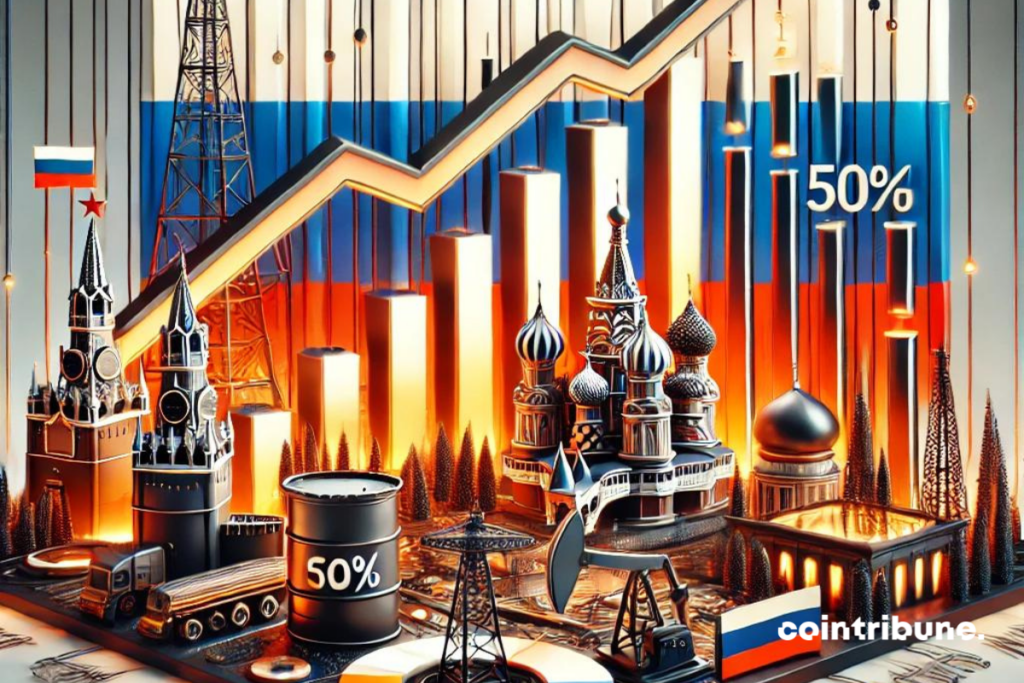BRICS: Russian Oil Revenues Surge By 50%!
0
0
Russian oil revenues are experiencing a dramatic surge despite severe economic sanctions imposed by the US and the EU. In June, oil and gas revenues skyrocketed to $9.4 billion. This unexpected performance underscores Russia’s economic resilience and highlights the growing role of the BRICS bloc in the global energy landscape. While sanctions aimed to weaken Moscow, Russia has skillfully circumvented these obstacles to redefine the dynamics of the international oil market.

The spectacular growth of oil-related revenues
In June, Russia’s oil and gas revenues recorded a spectacular increase of more than 50% compared to the previous year, reaching $9.4 billion. This exceptional rise comes in a context where numerous economic sanctions, mainly imposed by the United States, aimed to weaken the Russian economy. However, far from being paralyzed, this leading BRICS member has managed to adapt and transform these challenges into opportunities.
The drastic fall in oil revenues last year, marked by a 23.9% drop compared to 2022, could have foreshadowed prolonged difficulties for the Russian energy sector. However, thanks to an agile strategy, Moscow managed to reverse the situation. By selling its oil at reduced prices to alternative markets, including Europe and developing countries, Russia not only maintained its exports but also expanded its customer base.
This renewal is the result of a series of strategic measures. In response to the sanctions, Russia diversified its distribution channels and adjusted its prices to remain competitive. This flexibility allowed it to offset initial losses and strengthen trade relations with new partners. Consequently, hydrocarbon revenues rebounded impressively, thereby consolidating Russia’s position as a key player in the global energy market.
The impact of Russia’s oil resilience on the global economy
The spectacular recovery of Russia’s oil revenues has repercussions far beyond its borders, affecting the entire BRICS bloc, which includes Brazil, India, China, and South Africa. This group, controlling nearly half of the world’s oil production, directly benefits from Russia’s economic resilience, thus reinforcing its collective position on the international stage.
BRICS member countries have taken advantage of the opportunities offered by reduced-price Russian oil. India, for instance, has made substantial savings on its oil purchases, which has helped stabilize its economy amidst global market fluctuations. Similarly, China has increased its imports of Russian oil, thereby consolidating its energy reserves while bypassing restrictions imposed by Western sanctions. This dynamic has strengthened economic cooperation within BRICS, with each member benefiting from the diversified and strategic trade relations developed by Russia.
In the long term, this situation could have profound implications for global economic balances. The rise of BRICS, supported by the renewed strength of Russian oil revenues, could challenge the economic hegemony of Western nations. Moreover, investments in new oil discoveries, such as in Antarctica, promise to further increase Russia’s production capacities and future revenues.
As Russia and BRICS continue to strengthen their positions, Western countries will have to reassess their economic and diplomatic strategies. The increased dependence of BRICS nations on Russian oil could also prompt other countries to explore similar strategic alliances, thereby redefining the contours of international cooperation in the energy sector.
0
0







